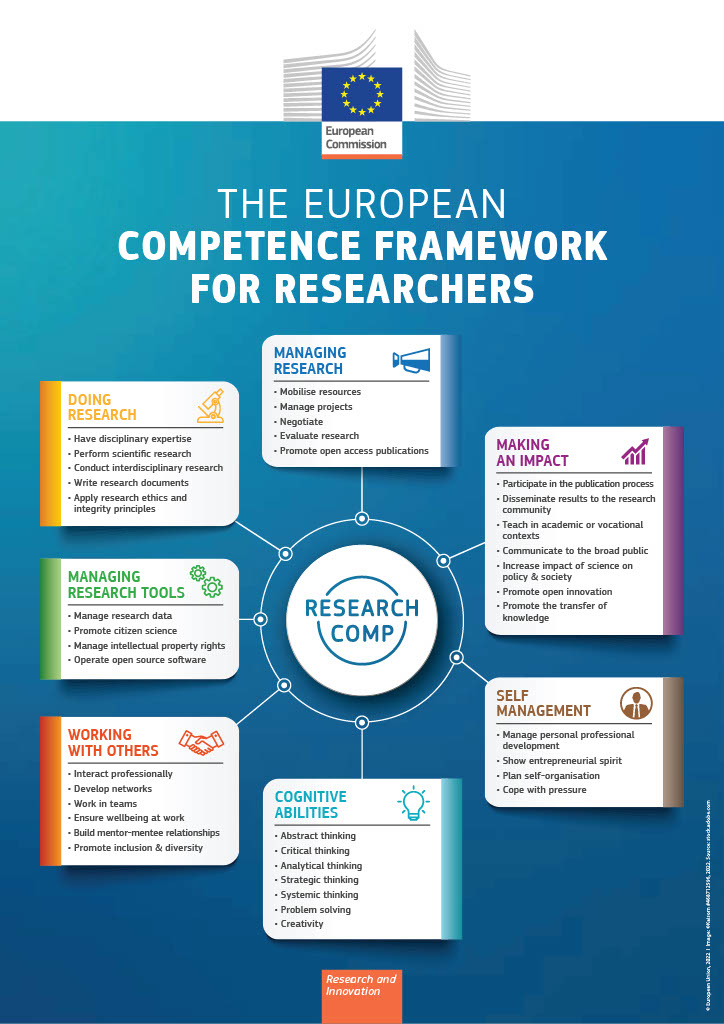Mastering the MSCA-DN proposal: skills and trainers for a well-rounded training plan
23rd May 2024 at 10:51 am
Welcome to the second part of our blog post series focused on the network-wide training component in MSCA Doctoral Networks (DNs). While in the first post of the series we focused on the key steps to take during the grant agreement preparation (GAP) phase of an MSCA-DN to ensure that the training programme is well organised for a successful project start, today we are looking forward to the next MSCA-DN call for proposals due to open next week and with a submission deadline scheduled for 27 November 2024. Whether you are considering improving a previously unsuccessful proposal for resubmission, or excited to put forward a whole new idea, here come our top recommendations for you on how to start setting up a solid training plan.
One of the key components of any MSCA DN is the training of doctoral candidates, and getting the training programme right is instrumental for a successful proposal and project. Based on the experience of our team at accelopment, we identified some key questions and related best practices to consider when designing a network-wide training plan for doctoral candidates (DCs). Of course, for the plan to fit the needs and background knowledge of all DCs within the project, one would need to know who these are, which unfortunately is not possible at the proposal writing stage. Nonetheless, the considerations below are intended to help customise the training programme as much as possible to fit the development needs and career prospects of the DCs to be recruited within the project, complementing the Personal Career Development Plans that will be defined for each DC individually.
It all starts with the right skills
A good starting point is to reflect on “Which technical and non-technical skills do the DCs need to conduct their research?” As a prerequisite to answering this question, we would expect that you have already drafted the individual DC research projects and hence have a pretty good idea of the methodologies, instrumentation, software, and other resources they will be using, as well as the expected results they will generate. Making a list of technical and non-technical skills associated with these research aspects and analysing and disseminating the results achieved for each DC project will probably reveal several commonalities. The skills relevant to several independent DC projects will then be key to consider for the development of network-wide training events.
The list of skills identified in the previous step focuses on the now, or rather on the skill set that the DCs will need to complete their doctoral research as successfully and smoothly as possible. But once they’ve achieved that, they will take their next career step. As supervisors and training network, you will want to ensure that the DCs are not just there to take the next step but that they are well prepared to do so confidently, facing new job opportunities as competitive applicants. This is why a second key question to consider in designing the training plan is, “Which non-technical skills are highly requested in relevant job market segments?” And this is where some research into job ads will prove helpful. We recommend having a look at the most common types of positions in academia and industry that the DCs from your DN could embark on after obtaining their degree and having completed their MSCA-DN journey. This will likely lead to the addition of a few non-technical skills to the list of competencies that the network should be training the DCs in. Often referred to as transferable skills, soft skills, 21st century skills, or other umbrella terms, these are important skills to include in the training plan of an MSCA-DN to complement the technical and research-related competencies and provide the DCs with a well-rounded background that can be applied across sectors. In our previous blog post in this series we already compiled a diverse list of transferable skills that could be relevant for most MSCA-DNs and might help define your own DN’s skill set list. Alongside this we recommend consulting ResearchComp: The European Competence Framework for Researchers, a helpful resource to identify key competencies to build into training plans while considering different levels of development to be achieved.

Training providers, from local host offers to Associated Partners
Once you have considered the two steps above and compiled a list of relevant skills for your network-wide training plan, the next step is to identify “Who can deliver the training?” We suggest looking at what is already offered at the local level by the main host institutions where the DCs will be enrolled for their doctoral programmes. Over recent years, most universities have been expanding their curriculum of transferable skills alongside their staple technical courses, so some of the skills you identified for your DCs can already be covered by local training offers. All other skills can be considered for the development of a network-wide training plan that is unique to your MSCA DN project. Identifying the right Associated Partners who can provide training in some of these skills will be an important addition to the consortium. While training on theory basics or 101’s in the research area of your DN can be provided by the experts and key supervisors among the Beneficiaries, you might want to consider contacting software or instrumentation providers to deliver training on specific technical skills, and companies specialised in transferable skills training, like accelopment, to deliver professional training as Associated Partners. It may not be possible to cover all skills you identified, but at least a good portion of these and with a good balance of technical and non-technical ones would make for a well-rounded programme.
With the key skills and professional training providers identified, you will have the most important puzzle pieces at hand and will be able to start defining the details of your MSCA DN training plan. Visit our blog again next week, to learn more about the next steps in creating a well-structured training plan! In the meantime, feel free to reach out to us for any questions.

Jacqueline Strehler
Research & Innovation Project Manager
